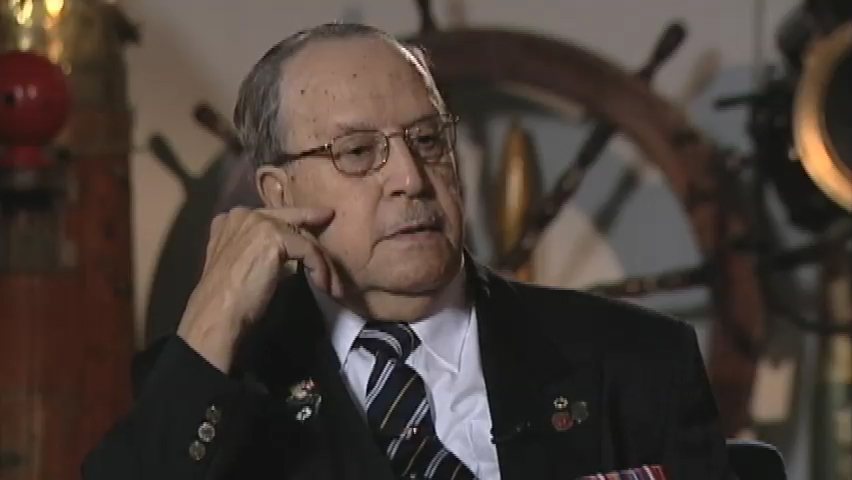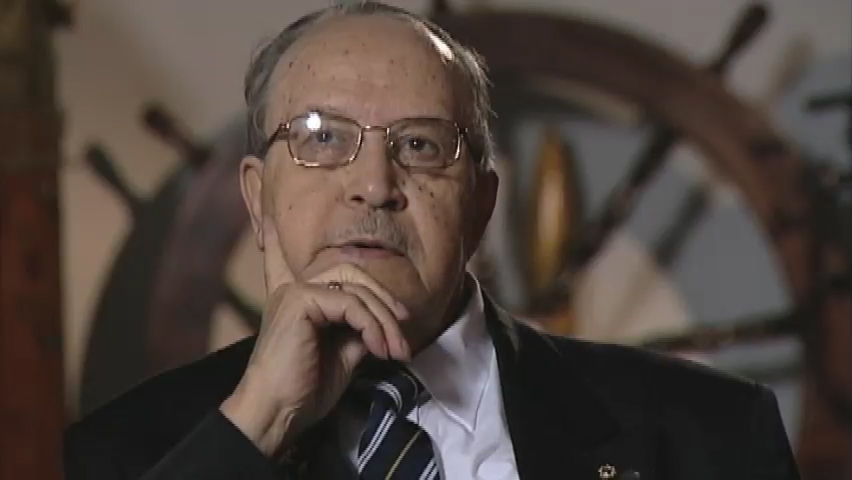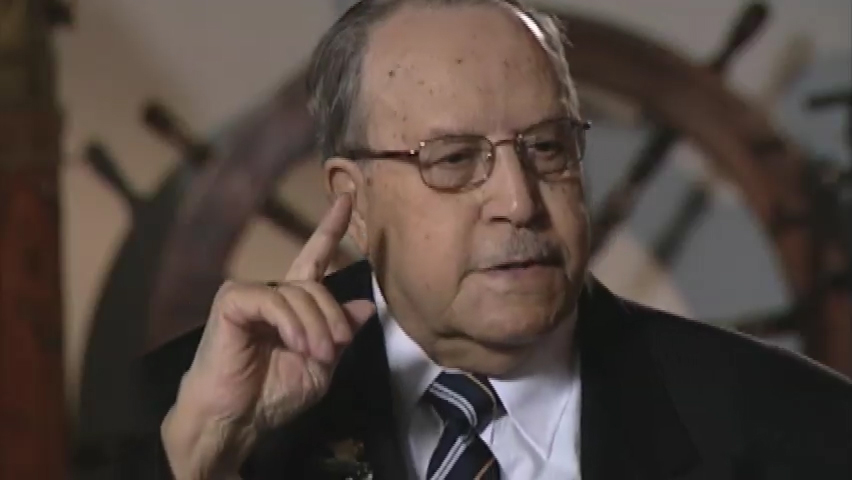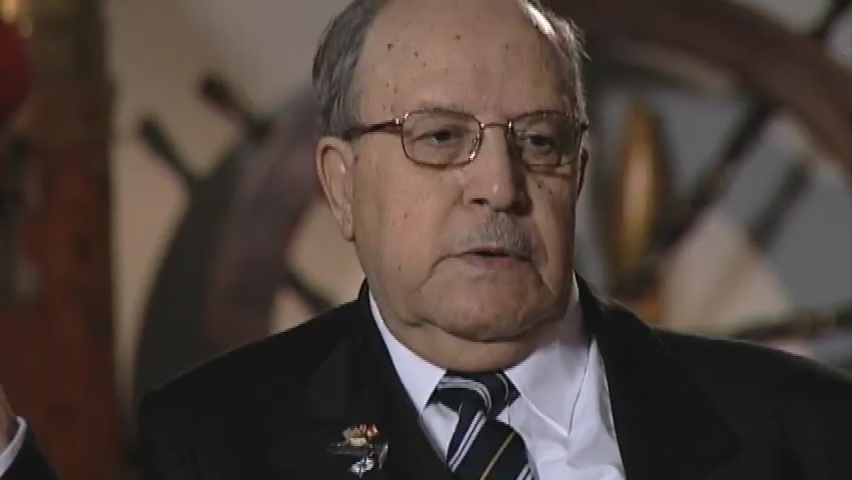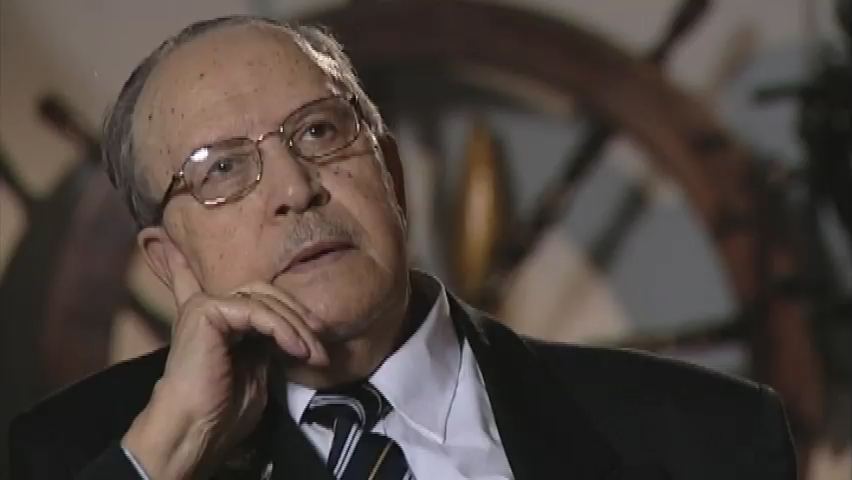In our role in bridge building, we would take and deliver
material. We had big diamond T trucks and they were loaded with
all kind of bridging material, bailey bridging material, and we
would pull up to a site and we would unload our material. If we
were required to help, then we would have to help, but we had
engineers there that did the building. They did the building
during the war, they did. Peace time, we did it because it was
part of our training. We did it. But during the war, I was only
a few times, I guess, we had to go actually help to build. Our
job was just to get it there, get it there, get it to the bridge
hill, bridge head, unload it and go back and get more material
and bring it up as it was required.
Now I remember one occasion, now that you talk about it, when we
were doing the crossing, the Seine river. It was daytime and the
Germans was, well, we’ll say ten miles on the other side but
they were using artillery. And between periods of building and
everything, the firing would come and they’d say, “Hey, it’s
about ready for another barrage. You guys take cover.” And there
was a real big heavy barrage and an officer said to me, “Hey,
Berry move that jeep!” Everybody was taking cover and running
and he says, “Move that jeep!” And I looked at him and I said,
“There’s lots of little jeeps back in the bridgehead but there
is not a lot of little Berrys, you move it,” and we all took
cover. That’s one occasion that was kind of comical and
everything because he said to me the next day, “You know you
refused an order.” I said, “No, that wasn’t an order. You just
asked me to move and I said there was a lot bridge...” so we
laughed about it.
Crossing the Rhine there was a lot of heavy fire and we were
doing it at night times and we unloaded. Another … there was
another new chap had just come over to us as a driver, and it
was his first time, night time. A lot of fire going on and
artillery and a lot of tracers and everything. So we said,
“Jeez, I got to go down there?” We said, “Oh yeah, just drive
down there.” We said, “You see all that stuff going across
that’s red?” “Yeah.” “Well, when it’s black, that’s when you
go.” And Holy God he said, “I got to do that?” And I said, “Oh
yeah, you’ve got to do that. You’ve got to go down, back down.
You’re okay, just do what I said.” And we laughed. We said what
a way to greet a guy, you know, because there was certain things
little things that happened and to us it seemed
kind of a jokey thing.
There was another occasion when they went to Arnhem, we went to
Arnhem. We didn’t go in. We brought boats, collapsible boats up
to bring them back from Arnhem. But the night that they were
going in Arnhem, we were on a road by a forest. And you could
see all the gliders and everything going in and dropping in. And
we said, “Holy crap, them guys are in, they’re really in for it
tonight.” So then they said to us, “Jeez, you got to get
collapsible boats up there,” because they’re forced back across
the river. So we did that, got them up and stuff like that.
The bridge companies, we were always in the front. We were never
in the, lets put it this way - in order for the infantry to get
across canals and vice versa,we had to be there to get them
across, so we were always up in the line. Now from the time I
went in July, I was there all during the war. I never got no
leave … seven days maybe to go to Amsterdam, but it was from
there until we come back home in 1946. So my experience all
through the campaign, so we called it a campaign, was hey, we’re
here today. We heard about somebody getting a hard, a rough
time, ah but that’s what we’re here for, let’s do it.




